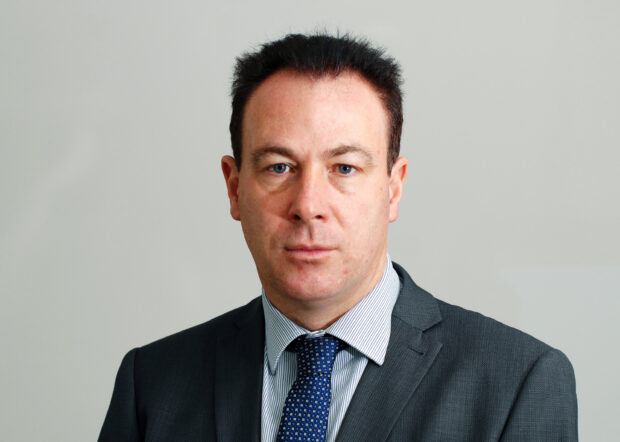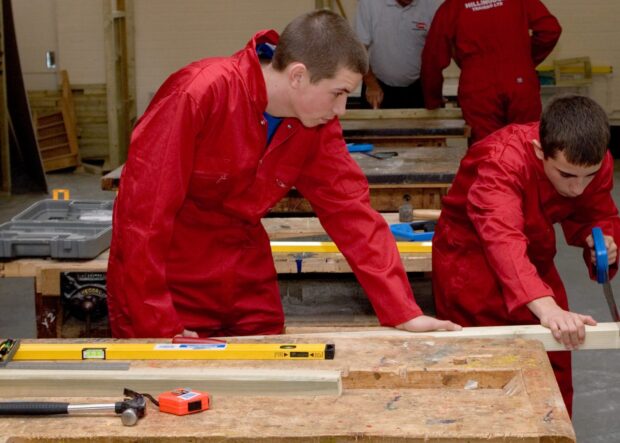
Ofsted’s Deputy Director for Further Education and Skills, Paul Joyce, talks about what our new education inspection framework (EIF) means for further education and skills providers.
As most of you will be aware, we introduced our new EIF on 1 September. Thanks to all of you who took time to respond to our consultation, which was well received and helped us to confirm our proposals or modify them as necessary.
The new framework is a refocusing of inspection, rather than a radical change. In many respects, our inspections will feel similar to what went before. However, our greater focus on the ‘quality of education’ will help us to assess more securely whether learners in further education and skills providers are receiving high-quality education or training that puts them on a path to future success.
Our new handbook summarises what further education and skills providers should expect and what will happen during an inspection. You might also find our introduction to further education and skills inspections helpful.
What will this mean in practice?
Inspectors will be spending less time looking at performance data, and more time considering how providers are making sure their learners are developing the knowledge, skills and behaviours required to allow them to successfully progress and achieve.
We’ll be looking at the substance of the education or training on offer: the curriculum, the design and the content of learning programmes. In essence, we’ll look at what learners are being taught, and how well they’re being taught it. Managers and staff in providers will be asked to explain why and how they deliver the education and training programmes offered.
I know the word ‘curriculum’ means different things to different providers, but it can be applied to any training, education or learning programme. It’s all about making sure it’s structured and sequenced in a logical way that allows students to learn, by mastering the basics, then acquiring more detailed knowledge and skills that rely on that underpinning information.
We want to see providers developing the knowledge, skills and behaviours that learners need to progress and achieve. How are they adding value to learners’ progression or employment prospects? This is about rewarding providers that are doing the right thing by their students.

Clearer, shorter reports
Now that our first reports have been published, you will have noticed that they’re shorter and clearer. As well as giving an independent view of how a college or training provider is performing and providing an overview of the courses offered, they give a real flavour of what it’s like to go to a particular provider.
We want to be a valuable source of information about providers of further education and skills training, and to give employers, learners and parents the information they need to make an informed decision about where to study or which provider to use. Our new reports will make it easier to understand strengths of each provider, areas where they can improve, and what makes a provider unique.
Employer View/Learner View
We’ve also made some changes to Employer View and Learner View, the surveys we use to gather feedback about a provider.
We want to make it easy for employers, learners, and for parents/carers where appropriate, to give us their feedback to inform our inspection judgements. These views form an important part of the evidence that inspectors collect and can be used to help providers to improve.
We’ve refreshed our Learner View and Employer View surveys in line with our new framework. We expect all providers to make these online surveys, as well as a staff survey, available once they have received the links in the inspection notification letter shortly before the inspection.
And finally…
I am really pleased with how our new inspections are going. Feedback from providers and inspectors has been very positive. I would like to take this opportunity to thank again all providers that were involved in our piloting activity. You’ve helped to make sure that our new framework meets the needs of the further education and skills sector and that Ofsted continues to be a force for improvement through intelligent, responsible and focused inspection.
Paul Joyce is Ofsted's Deputy Director for Further Education and Skills.
You can keep up-to-date with Ofsted news by signing up for email alerts. You can also follow Ofsted on Twitter.
3 comments
Comment by Terry Pearson posted on
Ofsted’s lesson observation research reported that the EIF approach to lesson observations was unsuitable for FE and Skills settings. I haven’t seen any updates from Ofsted which indicate how further research has been used to modify the lesson observations to make them appropriate. Are Ofsted able to provide an update for readers so that we can be reassured that the necessary changes have been made? If this has already been made public, a link to the document would be helpful.
Comment by External Relations posted on
Hi Terry, we're carrying out further research specifically designed to test the validity and reliability of further education lesson and training observations. We've also established a research group of academics with expertise in this area to help inform this work. We'll be publishing our findings next year. But that doesn’t change where we are now with the EIF and shouldn’t cast any doubt on its suitability for further education and skills contexts.
Comment by Terry Pearson posted on
Thank you for providing the update. I look forward to reading the findings from the on-going research of lesson/training observations for inspections of FES. It is encouraging to see that you have called upon external support from a group of academics to help with the task.
I hope the research is completed soon because although you claim doubt shouldn’t be cast on the suitability of the current EIF methodology for FES settings it is clear that since September 2019 FES inspections have been, and continue to be, carried out using unsuitable means of gathering evidence through observations and work scrutiny. This surely needs to be remedied promptly and preferably before any further FES inspections are carried out.